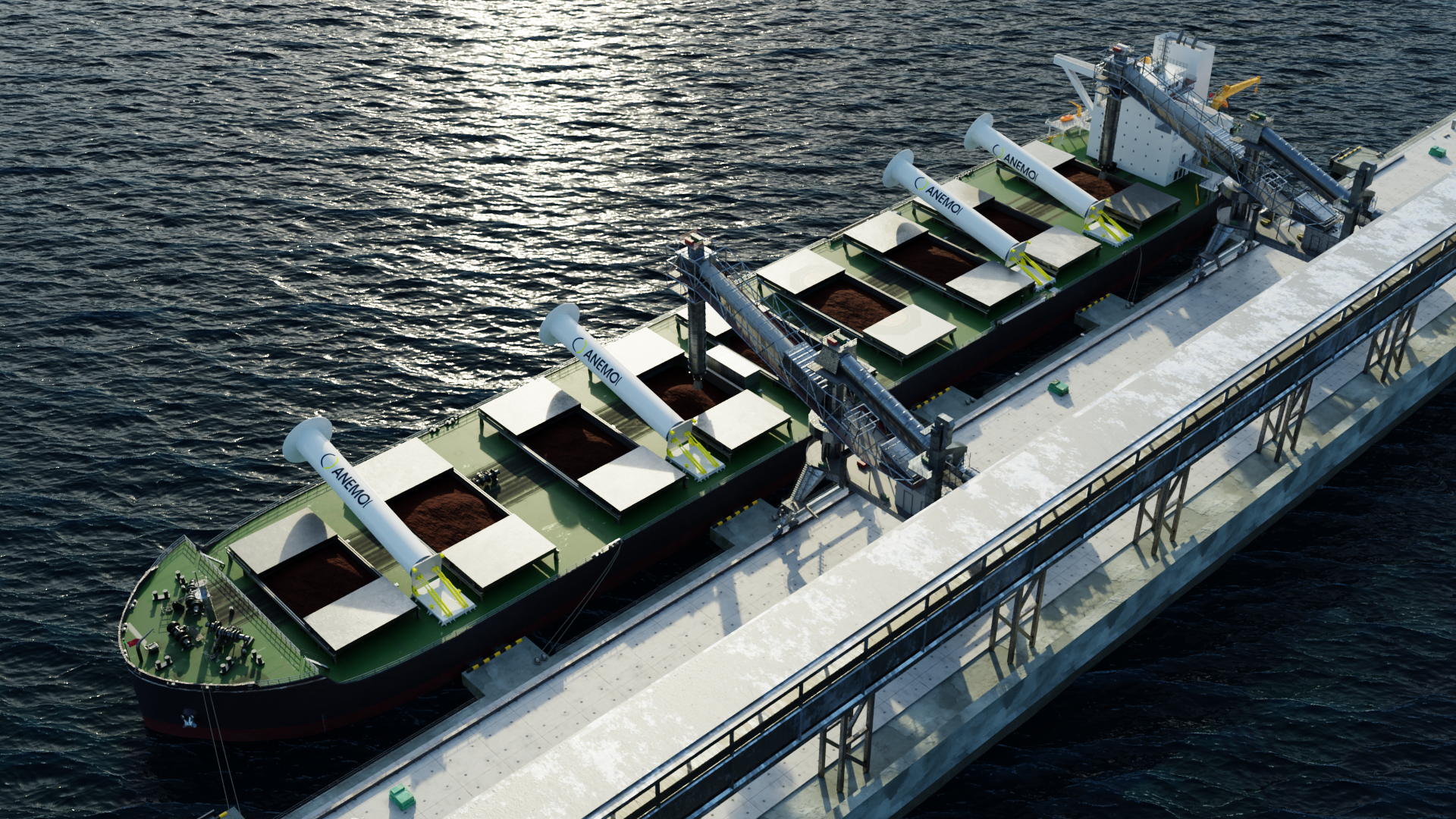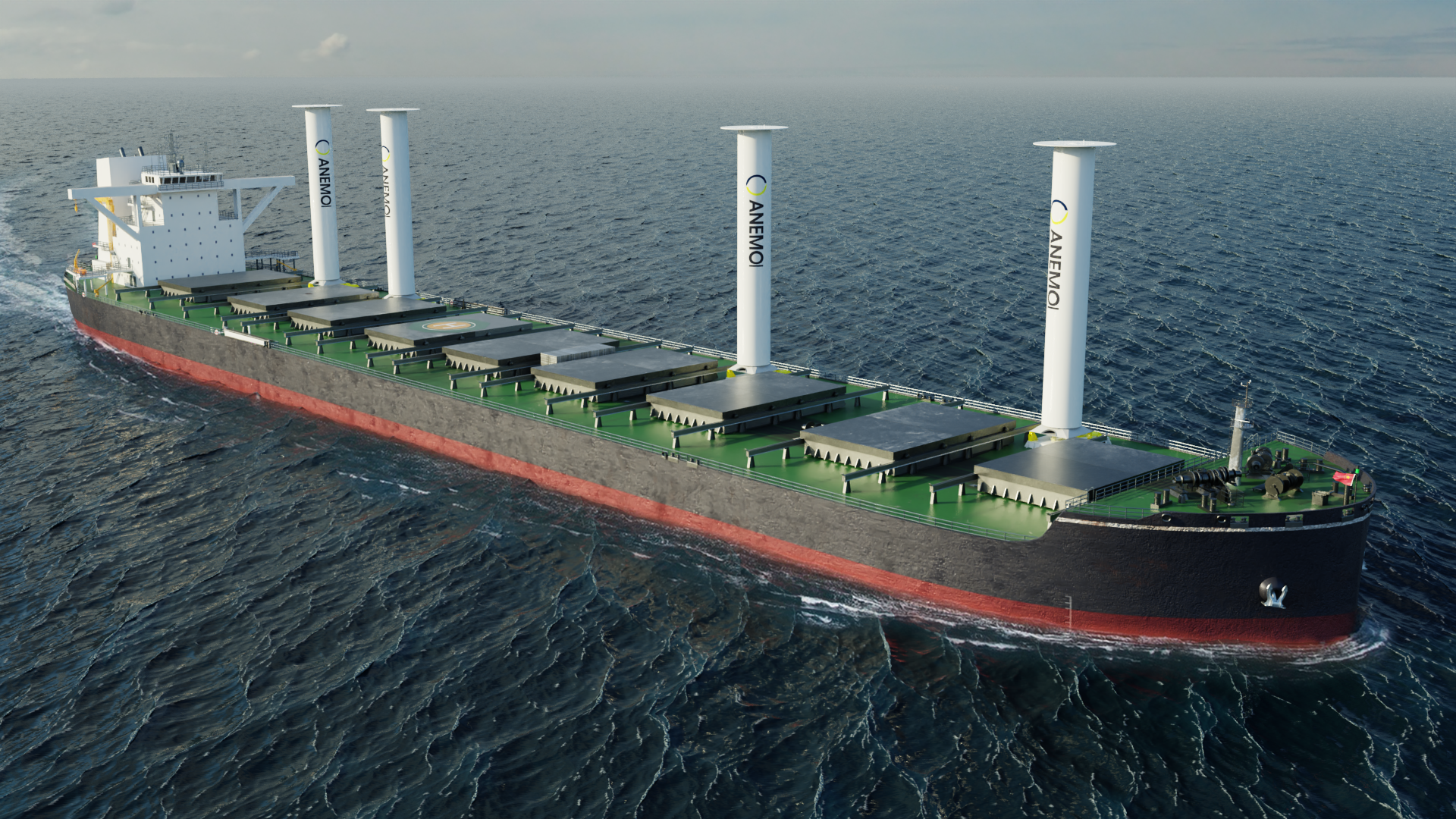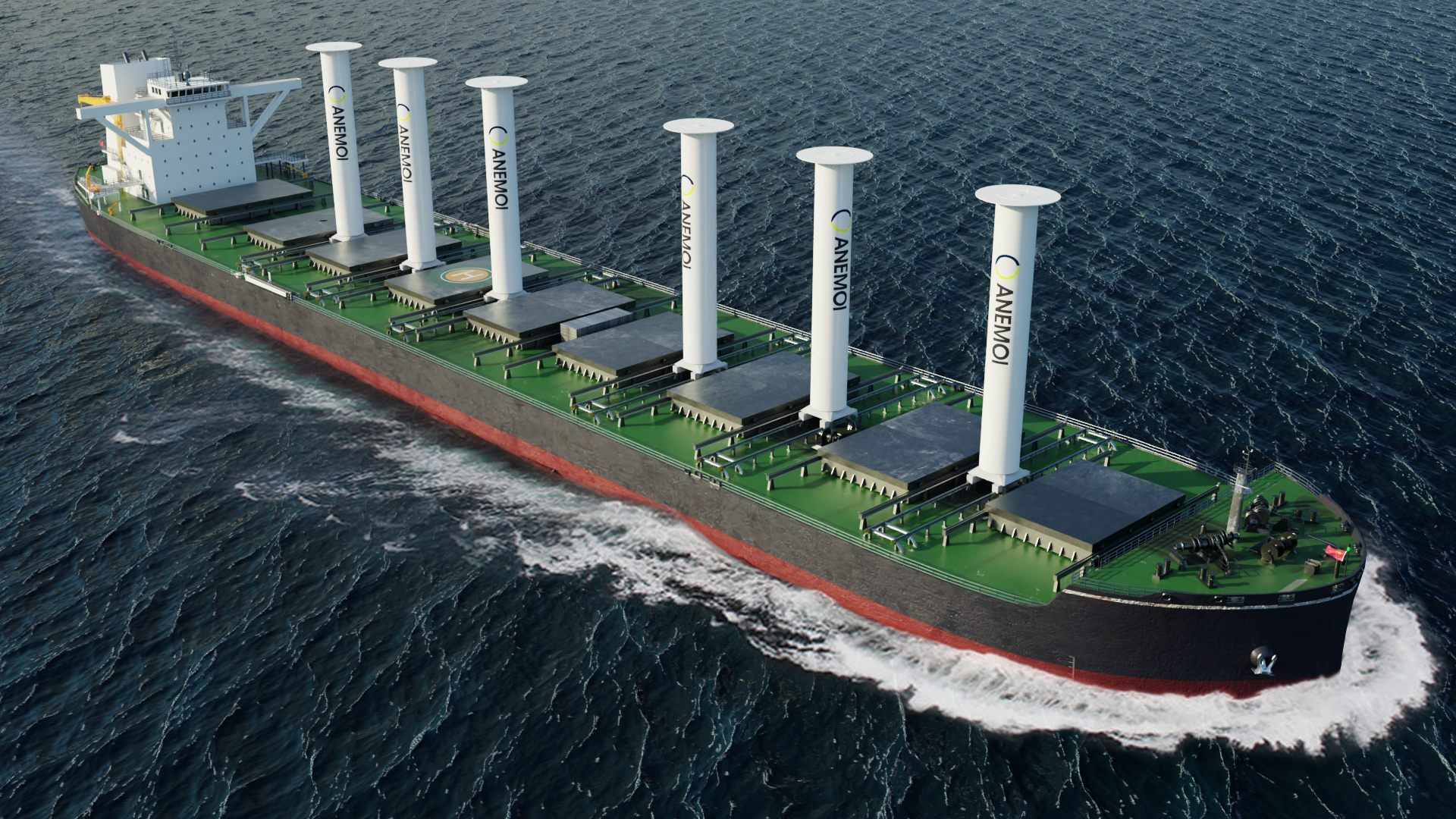Lloyd’s Register has granted Approval in Principle (AIP) for an SDARI (Shanghai Merchant Ship Design and Research Institute) designed 210,000 DWT Newcastlemax bulk carrier installed with Anemoi Rotor Sails to significantly improve efficiency and reduce environmental impact.
The Newcastlemax AIP is part of a pioneering joint development project (JDP), signed in 2020, with Anemoi Marine Technologies, Lloyd’s Register, and SDARI and brings together the OEM, classification society, ship designer, and ship owner to develop a series of energy-efficient vessel designs equipped with Rotor Sails. Oldendorff Carriers is the shipowner partner for this Newcastlemax design.
The AIP covers the structural integration for a ship design with six 5x30m Rotor Sails and Anemoi’s Rail Deployment System, which sees the Rotor Sails move transversely across the deck to avoid inference with cargo handling; and the structural integration for a ship design with four of Anemoi’s folding (tilting) 5x35m Rotor Sails.
Lloyd’s Register has assessed the calculation used to estimate the impact the Rotor Sails will have on the Energy Efficiency Design Index (EEDI) and validated that the newbuild Newcastlemax would have its EEDI score reduced from 1.92 to 1.37 (29% reduction) by installing six 5x30m Rail Rotor Sails and 1.47 (23% reduction) by installing four 5x35m Folding Rotor Sails.
Other vessels included in the JDP and to follow are an 85,000 DWT Bulk Carrier, a very large ore carrier (VLOC), a 114,000 DWT Aframax tanker, a 50,000 DWT MR tanker and a very large crude carrier (VLCC).
Rotor Sails are modern mechanical sails comprised of tall cylinders which, when driven to spin, harness the renewable power of the wind to provide auxiliary propulsion to vessels and can reduce overall fuel consumption and lower harmful emissions by 5-30%. The technology can be used in combination with other technologies to further increase efficiency and reduce fuel consumption of all fuel types including incoming future fuels.


